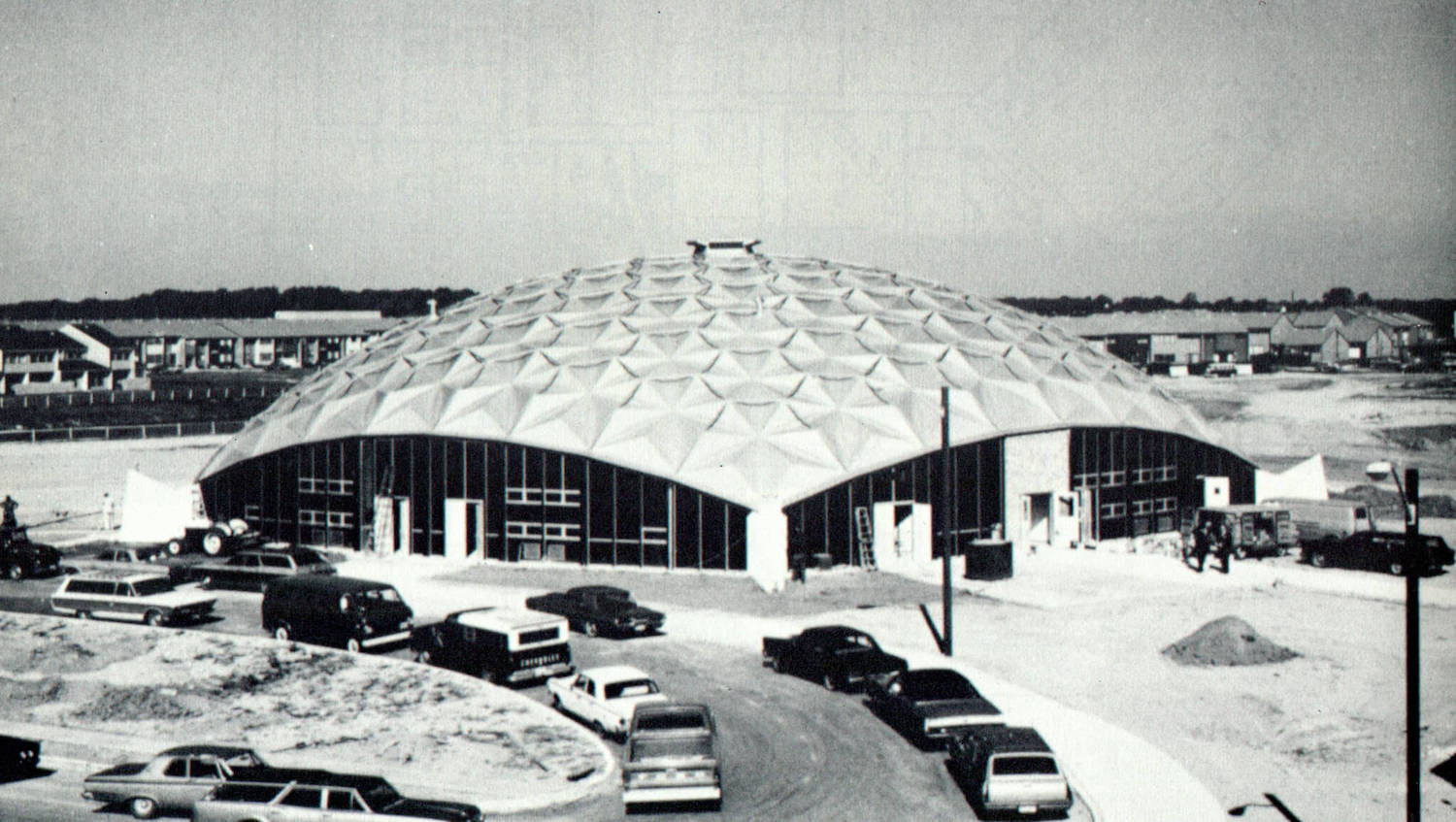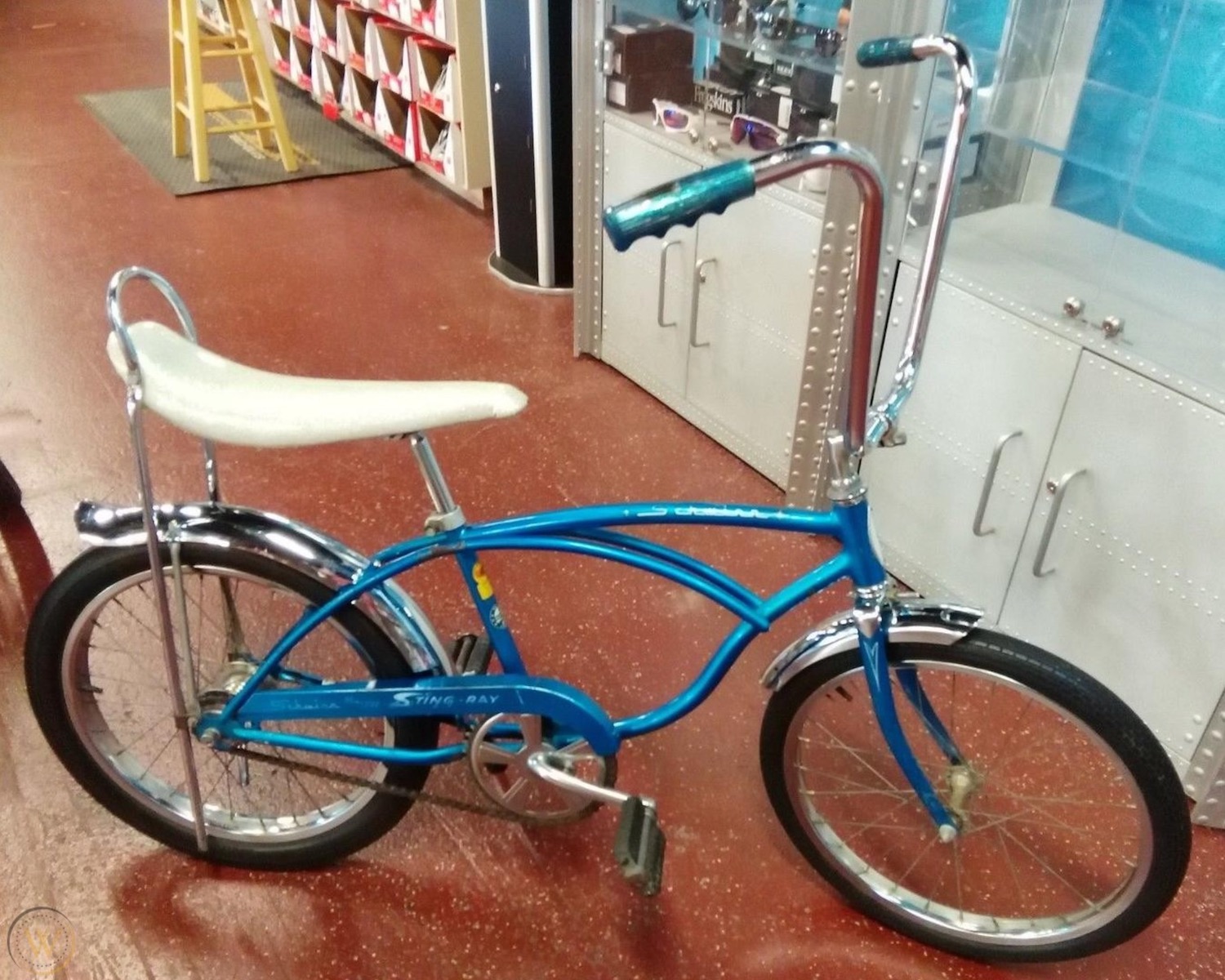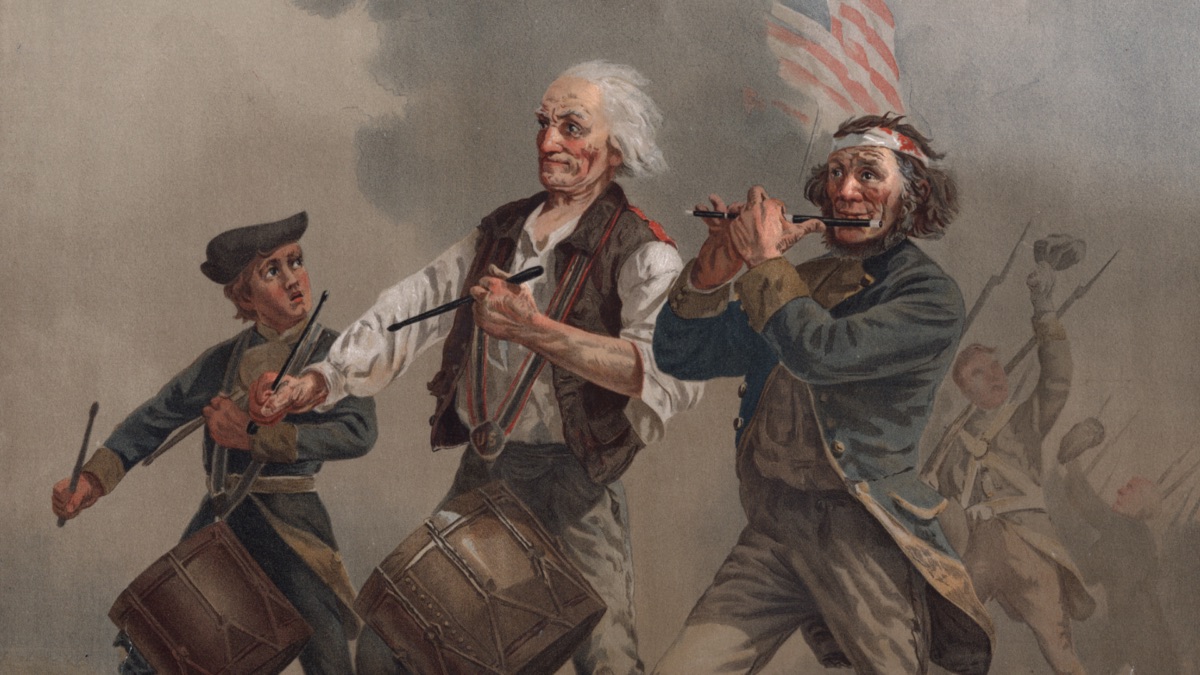The Ship of Theseus
“Here is a rule to remember in the future when anything tempts you to feel bitter: not ‘This is misfortune’, but ‘To bear this worthily is good fortune.’” – Marcus Aurelius, Meditations
Somewhere between elementary school and fifth grade my parents bought a townhouse in a brand-new community built on a former farm field in East Windsor. The development was named Twin Rivers and it sat about a half a mile from Exit 8 of the New Jersey Turnpike. The project was designed to capitalize on commuters to NYC fifty miles to the north and young Boomer families fleeing the urban jungle of the late 1960’s. The word townhouse makes it sound sophisticated, but it was just a plywood box in a long string of plywood boxes banged out under the Mid-Atlantic sun by the last of the old-school tradesmen that dominated the sprawl of suburbia; Italian masons, Polish plumbers, Piney carpenters. In the field in front of my house they built a monstrosity of a school, a squatting, gold, geodesic dome fixed to the ground like a cross between a UFO and a Bucky Fuller fever dream. It was called the ethel McKnight School after a local teacher who had served the community for over 45 years. For her efforts she received, as a token of respect and admiration, the world’s noisiest, hottest, asbestos-sprayed middle school, named in her honor.

We’d moved in from our former residence at Northgate Garden Apartments which featured no gardens and served as a gate to an endless plain of potato farms that happened to be to the north. We were, by today’s standards, fairly low on the economic ladder and the new home in a slightly nicer location was a mark of my parent’s upward mobility. It cost them a whopping twenty-seven thousand dollars and it was a stripped-down minimalist dwelling, but it had two floors and basement with a backyard-not much larger than a one car garage surrounded by fence to separate from the neighbors on either side. I had my own room; my parents had a bigger one with its own bathroom and from the moment they moved in they went at it, one project after another to turn it into our own home. I spent most of my time in those first couple of months before school started exploring my surroundings. At the end of the row of houses that marked Bennington Drive was a freshly dug lake filled with murky brown water and snapping turtles. All of the streets had historical names based on the American Revolution as a way of giving some history to what was otherwise a brand-new town. The place was saturated with history. I regularly picked up jasper arrowheads and grooved axes pecked from river cobbles in the adjoining field, ancient relics turned up by brand new activity and I kept them lined neatly on the shelves above my desk. Sometimes I’d turn up white, lead musket balls and verdigris colonial coppers, bits of broken Delftware, and blackened silver shoe buckles, wondering about the people who’d left them behind and where they’d gone. Just up the road was the site of Washington’s decisive blow against the retreating British columns at the battle of Monmouth, and on the other side of Route 1 to the west was Princeton where my own ancestors had fought so long ago. And everywhere you looked there were scores of granite monuments and weathered memorial plaques commemorating one famous colonial figure or another. Washington Slept Here was an actual sign planted in the middle of Quaker Bridge Road, rooted beside a massive oak tree that had stood there for at least three centuries until it was removed years later, disappeared into the bowels of some State of New Jersey storage locker, the tree soon to follow to make room for more lanes, for more cars.
My father had taken a job with a Wall Street helping to integrate a computer language for business named COBOL into the mainframe computers that were just beginning to come on line. He took the bus every morning to Port Authority and in the evenings my mother and I would drive to the parking lot of Mom’s Peppermill and wait for him to climb off the orange and black striped Suburban Express, his pant cuffs filled with pale yellow punched tape chads. Those years were, for me at least, the idyllic American childhood. I rode my bike, a blue Schwinn Stingray Deluxe with a banana seat and a sissy bar to deliver The Trenton Times to a couple dozen customers every morning of the week and twice that number on Sundays. I don’t remember how much I earned, it couldn’t have been much, but I remember having money of my own, of being able to buy a slice of pizza- only thirty-five cents, that I recall- and a cold 8 oz. Coca-Cola in the green glass bottle for another dime. I held on to some of the change I earned, Mercury dimes and Standing Liberty quarters, not because they were made of silver, but because they looked like Roman coins to me; classic, beautiful. I didn’t like the Roosevelt dimes because they had little ridges, called reeding, that ran around the perimeter and because right down the road there was a gigantic sculpture of his head in the town bearing his name right on the edge of Lake Etra and every time we passed by it to go to the lumber yard, I’d look at his baleful stare, looking out across the lily pads like he was watching a bobber waiting for a strike. I could never understand why they’d put that pensive face on a coin instead of the graceful Mercury with his winged cap and I have held a strange grudge ever since. And so, I grew up there for a time, solitary mostly, studiously aware of the world around me, imbued by the long trail of people that had been here before me, their artifacts and statues scattered about.

In the field between our home and the school was an old MIG, a captured North Korean jet stripped down to nothing more than the fuselage and canopy, dropped there on a small concrete pad by the local VFW post for kids to climb on. The skin was a sun-scorched olive drab and on each wing, there was a faded red start that vibrated in contrast to the rest. It was pretty big to an 11-year-old and I’d seen more than a few kids take a bad fall from the wings, divots of kid skin dug out on the raised rivets and bolts, heads split open climbing in and out of the derelict cockpit, little tufts of children’s hair sprouting from every metal snag. Beyond that sat my school, its gilded dome oddly reminiscent of the shells on the giant snappers that lurked in the muddy lake beside it. I could walk across the field in a couple of minutes and be home before the rest of the kids finished filling the seats on the bus each afternoon. That year featured a lot of fragmented memories, some of which were clear as day to me half a century later while others remain concealed by a darkness that never abates. At night the radio in my room played a mix of AM music that came in clear as a bell, 77 WABC and Cousin Brucie playing a constant mix of the greatest music I had ever heard; Black Magic Woman, The Long and Winding Road, Your Song, Green-Eyed Lady and The Tears of a Clown. The songs were always about some kind of love, but there was an innocence to it that fit the time, from I Want You Back sung by a kid my own age, to the heartbreaking words of a much older lady who’d lost out again in One Last Bell to Answer. I would listen to those tunes, memorizing every line and then just before I fell asleep, I’d turn the dial to WOR and listen to Jean Shepherd from the opening music, the trumpet trill from some far off race track that led into the heart pumping tempo of Authur Fiedler and the Boston Pops knocking out one minute and fifty-seven seconds of Richard Stauss’ Bahn Frei Polka. He’d shill for a few minutes for his sponsor, General Tires (sooner or later you’ll own General) and then he’d launch into yet another nightly shaggy dog story from his own childhood in far off Gary, Indiana, an impossibly wonderful and far off place from my darkened bedroom in central New Jersey.
A few years later my parents moved us again. My mother had taken a course in bookkeeping at Trenton State College and began to do work for a string of shady businesses along Route 130. A banana importer with a name right out of a Scorcese movie and an aluminum siding sales company that morphed into an above ground swimming pool company when the weather warmed up. There was a retired boxer and sometime mentioned in the newspapers Gambino associate that had a couple of car washes and a TV rental outfit that did an early version of the check cashing business on the side and half dozen others besides. I have no idea if my mother knew about the kind of work she was doing but there’s no way she couldn’t and now, looking back on her life through the rearview mirror of the years since she died, there’s no doubt that she was both smart enough and shrewd enough to parlay that skill set to our benefit. She had been born into abject poverty moving as she described it, from pillar to post her entire life until she met my father and fell in love. My father for his part continued to please his employers with his acumen and capacity to solve complex problems simply. Eventually my parents, who’d married as teenagers and with nothing, bought a beautiful home in Princeton where I spent my teenage years attending a celebrated prep school and reaping the benefits of the American dream come to fruition. I went from memorizing the times tables and dressing like a pilgrim each Autumn, to learning Latin that I cannot forget even though I cannot use it; bo, bis, bit, bamus, bantus, bantur. I, isti, it, imus, istus, erunt. My parents, descended from 11 generations of impoverished founders that struggled from the first colonies on the edge of the Hudson and the Millstone and through the centuries that followed, had finally reached the Promised Land. Where they had spent their lives sitting down to supper in the kitchen, we could now eat our dinner in the dining room.
Plutarch told the story of ship which sailed under Theseus and the youth of Athens, returned from Crete and continued to sail until the time of Demetrious Phalereus. And in that time whenever the boards would rot or the oars grow old, each piece was replaced one by one, over time until no part of that original ship remained, but that ship appeared to all who looked upon it to be the same as she ever was from the outside. Philosophers Heraclitus, Plato, Plutarch, Hobbes and Locke have revisited the question over time, questioning that it either was or was not the same ship and thus the paradox arose. Old things go away, and once the living die. What was real becomes a memory, and then is forgotten, leaving little more than shards and fragments from which we can only surmise at their original purpose.
I did not turn out as my mother had hoped. I did well in school, nearly aced the SAT’s bound for an Ivy League education and shot for the gold ring but I chose to follow another path and enlisted in the Army to become a paratrooper, just like my uncle had. I wanted to serve my country like the long line of men in my family who’d gone before me, fighting and sometimes dying in places like Pleiku and Anzio, Kasserine and The Somme, Fredricksburg and Trenton. I had, like all those singers I had listened to on the radio in my room at night, fallen in love, not with a girl but with my country, or at least the image I had of it in my mind. All of those trips to the Shore with its salty air and thundering waves and the moonlit drives home through the Pine Barrens, the picnics at Washington’s Crossing on the Delaware, the sight of New York City rising in the distance like some modern Camelot on those day trips my father would take us on, to see the museums and shop at Macy’s and FAO Schwartz, they all added up to something much bigger than any ambition my mother may have had for me. And I followed it along gladly, expectantly, filled with pride, resolute. The tales told by my relatives under the apple tree in my grandparent’s yard while the sky dimmed and lightning bugs glowed, the hikes up to Bowman’s Tower not far from the old glassworks where my great-grandfather drowned, the camp-outs in backyards, the squirrel hunts with .22’s and later, frosty mugs of Stewart’s root beer brought to you on a tray they’d hook to the driver’s side window while you sat on the big leather seats in the big green Dodge and listening to the gentle sound of a parent’s laughter on a Summer night, they weighed more than the Universe in the balance of life as I rode the scale from the bottom to the top and back down again.
Near the end of my grandfather’s life, he told me that he was ready to go. He said that he had outgrown his time and I joked with him that he had years left, even at 95. I have spent my lifetime in love with my country but that is not the same thing as it once was. I feel like that woman singing that song about having one less bell to answer, one less egg to fry. I don’t choke up at the National Anthem anymore and the military haircut I have worn my entire adult life has grown out like the old man banging the drum in The Spirit of ‘76, not out of fashion, but because no one will cut my hair unless I wear a mask. I have become an anachronism in the country of my birth and every part of the contract I had between what I was taught to respect and uphold, to serve and protect has been breached and in bad faith, not by me, but my own government, by my own people. They have moved on to some other place while I march on to the beat of a different drummer, another time. It’s not easy to become an anachronism, but I understand my grandfather’s words now in a way I could never have known then.

I drove into Boston with my son today to visit a friend and to look at a greenhouse to dismantle and bring back home. It has been a good while since I have left the farm, never mind visit a city, but it was a shock to me. Everyone wearing their masks, resignedly, in complete capitulation to some obscene diktat that makes a mockery of everything I have ever believed about freedom, about liberty. It broke my heart, not for me, but for the future my children will inherit. And though I kept it to myself the entire drive home, I could not help but wish for another outcome, a different course that we could have taken somewhere along the way. But this is our time and so I will make the very best of it that I can so that my children will have the kind of memories I have before they too discover those truths that everyone must at some point face.
America is the ship of Theseus. For all appearances it resembles the country in which I was born, in which my father and his father before him were born, grew up, lived and prospered in, but it has been replaced, board by board, nail by nail, until it is a paradox built of nothing more than memories of what it once was.
